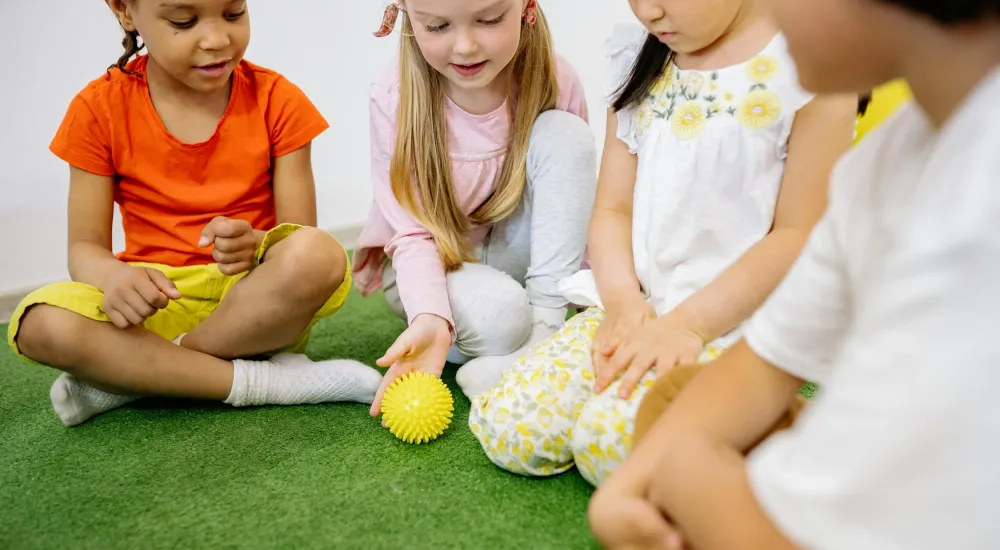
What is Social and Emotional Learning?
Social and Emotional Learning (SEL) refers to the process of learning social and emotional skills that set the foundation for healthy relationships, mental well-being, and skills to thrive at school and in life. Developing social and emotional skills is a life-long practice. SEL can take place at home, school, and in community settings.
SEL in Schools
SEL is integrated into the school curriculum in British Columbia. All BC students take part in SEL, although the approaches may vary. A commonly used SEL framework in schools is the CASEL Wheel which focuses on building skills that promote self- and social awareness, relationship skills, responsible decision making, ad self-management, such as skills for managing stress and self-regulating emotions and behaviour (see also Social & Emotional Development | Kelty Mental Health).
SEL aligns with many aspects of the First People's Principles of Learning, which place value on learning within supportive and caring relationships, exploring one's identity, and considering the consequences of one's actions. SEL also aligns with many cultural traditions that aim to promote a healthy sense of identity, social connection, compassion, service to the community, and collective well-being. In fact, an important aspect of SEL is connecting with one's own culture and learning about the cultures of others.
Decades of research on SEL programs indicates that students who participate in SEL programs at school have better social and emotional skills, greater mental well-being, and more positive peer and school experiences compared to students who do not have SEL at school (Cipriano et al., 2023; Taylor et al., 2017). Additionally, students who take part in SEL at school have better academic performance and fewer behavioural and mental health challenges compared to students at schools without SEL (Durlak et al., 2022).
A first step for learning more about SEL might be to connect with your child's school to find out what SEL initiatives they have underway. School newsletters may be a good source of information. Some SEL programs underway at your school may also have resources for families. For example, Second Step, The CALM Curriculum, and MindUP have online resources for families. Using some of the same SEL strategies at home as your children are using at school can support their healthy social and emotional development.
SEL Strategies for Home
SEL skills also can be developed in your daily interactions with your child. Researchers at Harvard University have identified six broad areas of SEL: emotion, social, cognitive, identity, perspectives, and values. Each area is made up of multiple skills that can be promoted at home. Here are a few research-based tips to try at home.
Emotion Skills
- Help your children build awareness of emotions by talking about your own feelings and validating all emotions (It's okay to feel sad, angry, disappointed...)
- Discuss healthy and unhealthy ways to express emotions that align with your home and cultural values. For example, hitting a pillow may be okay, but hitting people is not okay.
- Try out different ways to regulate emotions to see what works best for your family. Participating in cultural activities, such as music and dancing, spending time in nature, and seeking support through social connections are some healthy and effective ways to help your child process their emotions during challenging times.
Social Skills
- Model positive social behaviours, such as empathy, kindness, and compassion, and your child is more likely to engage in those behaviours.
- Build social awareness and healthy relationship skills by getting to know the diversity of people in your community as a family.
Cognitive Skills
- One of the best ways to improve brain (cognitive) function is combining physical activity with learning new things, such as dance, yoga, recreational sports, and martial arts. Enjoy some active time together as a family when you can.
- Support your child's critical thinking and problem-solving skills by talking through challenges together and allowing them to find their own solutions.
Identity
- Having a healthy sense of identity is one of the most important ways to promote well-being. Encourage your child to embrace and celebrate their cultural and gender identities.
- Having a sense of purpose contributes to a healthy identity. Talk to your child about what is important to them and support their participation in those activities.
Perspectives
- Cultivating positive perspectives such as gratitude, optimism, and mindfulness, are foundational to mental well-being.
Values
- Discuss and explore personal, social, and cultural values with your child. Your child may hold different values than you. Learn from your child and practice acceptance as a source of connection.
SEL at home and school is time well-spent! The social and emotional skills gained through SEL set your child up for success at school and in life. SEL is also an effective way to promote your child's mental well-being for years to come.
Looking for more resources on SEL? Listen to our Kelty Centre Where You Are podcast episode SEL: Supporting Kids at Home and School for additional tips to promote SEL at home.







